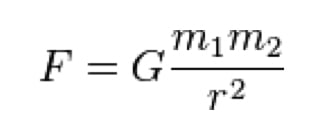
British-born theoretical physicist Freeman Dyson, in a book called The Scientist As Rebel, wrote, “All science is a rebellion against the restrictions imposed by the locally prevailing culture.” Science as rebellion? That statement is about as antiquated as belief that maggots spontaneously generate from rotting pork chops. Far from rebelling against the “prevailing culture,” science, or what I call the “scientific-industrial complex,” has become that prevailing culture—and woe to the fool who publicly questions its most cherished theories or (even more feloniously) the metaphysical assumptions behind them.
Sure, like 400 or 500 years ago, “natural philosophers” (the term “scientist” is a nineteenth century creation) nibbled away at the dogma, tradition, and ecclesiastical authority that for eons dominated the intellectual landscape. My favorite line in the history of the West came when—defying the stranglehold that Aristotle (the Darwin of his day) had on just about every discipline (like Darwinism today)—Englishman Francis Bacon declared, “I cannot be called upon to abide by the sentence of a tribunal which is itself on trial.” Wow! In other words, How dare you condemn me for violating a tenet of your worldview when your worldview itself is what I am challenging to begin with?
It’s no surprise that no mercy is shown to Intelligent Design advocates or, the lowest of the low, Creationists.
Bacon was a foundational figure in what has become known as “The Scientific Revolution,” when what changed was not just what people knew but how they came to know it. The revolution wasn’t simply in particular knowledge itself, but in what it meant to have knowledge in general. People, for instance, started studying nature through experiment, mathematics, measurement, and empiricism instead of through the “essences” and “perfections” and “entelechies,” and “causes” taught by Aristotle, whom Dante Alighieri (1265-1321) knighted as “The Master of Them That Know.”
This change didn’t come easily, however. Galileo told about an anatomist, a dissected corpse before him, who showed an Aristotelean standing there that the nerves in the body originated not in the heart (as “The Master of Them That Know” taught), but in the brain. After staring at the corpse silently for a few moments, the Aristotelean replied, “You have shown me this so clearly that I would be forced to admit you right, if only Aristotle himself did not contradict you.”
Nevertheless, the work of men such as Nicolas Copernicus (1473-1543), Johannes Kepler (1571-1630), Galileo Galilei (1564-1642), Rene Descartes (1596-1650), Francis Bacon ((1561-1626), and Isaac Newton (1642-1727) overthrew centuries of received theological, scientific, and philosophical belief. What a revolutionary shift when gravity was understood to be, not what happened when—due to the earth sitting immobile at the center of the universe—objects like rocks naturally (said Aristotle) fell toward it. Rather (said Newton), objects like rocks fall toward the earth because “a particle attracts every other particle at a force that is directly proportional to the product of their masses and inversely proportional to the square of the distances between them.”
Newton’s theory can be expressed as follows:

No question, this formula presented a radically different picture of reality than did the notion that rocks fall because the earth is their “natural place,” even if that notion held sway for almost 2,000 years.
Newton’s formula (within limits), and modern science in general, worked so well, their predicative and technological successes so stunning, that today science wields oppressive power over most every intellectual endeavor. Overthrowing one intellectual oppressor, the revolutionaries replaced it with another. Despite the myth of openness and objectivity, the scientific-industrial complex brooks little dissent, especially in the area of origins, where anyone who questions, much less denies, the paradigm of Darwinian natural selection and the materialistic pretensions behind it are all but branded with the scarlet letter.
No one is spared, either. When in a 2012 work, Mind and Cosmos, one of world’s leading intellectuals, Thomas Nagel—an atheist and evolutionist to boot—challenged the sacrosanct idea that everything, especially human consciousness, could be explained through the cold hard materialism of natural selection alone, he faced an assault by the Neo-Darwinian Inquisition that would have made Torquemada blush. A few years ago, when two respected scientists unwittingly used language in a scholarly paper that implied design, the scientific community went Medieval on them, forcing both to grovel for absolution like heretics recanting before a fifteenth century tribunal in Seville.
If the scientific community does this to accepted colleagues and superstar philosophers, it’s no surprise that no mercy is shown to Intelligent Design advocates or, the lowest of the low, Creationists. These people face a full frontal assault by a mob whose minds are open and objective to any paradigm that reduces all life, human consciousness included, to the purposeless and unguided process of pure matter alone but who impale anyone who dares to think outside the exceedingly narrow parameters of this, their current paradigm.
The scientist as rebel? Surely you jest, Mr. Dyson. That is, unless scientists openly challenge the idea that the beauty and complexity of life can be explained only by the crass materialism espoused by the “locally prevailing culture.”
Now, that’s rebellion.
Clifford Goldstein is editor of the Adult Sabbath School Bible Study Guide. His latest book, Baptizing the Devil: Evolution and the Seduction of Christianity, will soon be available from Pacific Press.